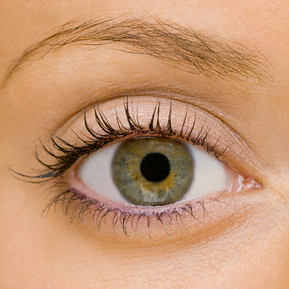Protecting Your Vision and Eyes
 As we age our vision changes either from the normal aging process or age-related eye diseases. While some changes such as tearing, floaters and the need for reading glasses to see fine print maybe little more than inconveniences more serious age-related eye problems can develop. Eye diseases and age related problems undetected and untreated could result in irreversible vision loss and even blindness. The first step to avoiding serious problems is getting regular check-ups not only with your physician but also with a trained age-related eye care specialist.
As we age our vision changes either from the normal aging process or age-related eye diseases. While some changes such as tearing, floaters and the need for reading glasses to see fine print maybe little more than inconveniences more serious age-related eye problems can develop. Eye diseases and age related problems undetected and untreated could result in irreversible vision loss and even blindness. The first step to avoiding serious problems is getting regular check-ups not only with your physician but also with a trained age-related eye care specialist.
The following is a list of common age-related eye problems:
Cataracts - The eye has a lens made of protein that helps the eye to focus. When protein molecules clump, a cloudy spot (called a cataract) forms. Sometimes starting to develop in our mid-40’s cataracts are common in older people. Because cataracts grow slowly, your eye doctor may simply monitor a cataract until it interferes with your vision. Today cataract surgery is a very common procedure and nearly all cataracts can be successfully removed.
Dry Eyes - Eyelids have lacrimal glands that produce tears that drain into tear ducts in your lower eyelids. If your lacrimal glands stop working the eyes will become dry and uncomfortable. Eye drops can provide some relief but will not clear blocked ducts which maybe the cause of the dry eyes. There is procedure to partially plug your tear ducts to keep tears from draining too fast. While dry eyes can occur in both men and women- women are most often suffer dry eyes after menopause.
Glaucoma – Glaucoma may occur in one or both eyes. Primary open angle glaucoma is the most common type of glaucoma and is caused by the eyes drainage canals becoming clogged over time. This clogging causes the inner eye pressure (also called intraocular pressure of IOP) to rise because fluids cannot drain from the eye properly. The constant pressure eventually damages the optic nerve in the back of the eye and could eventually lead to blindness if left untreated. The pressure in the eye usually develops slowly and routine eye exams can detect glaucoma before it becomes dangerous.
Age-Related Macular Degeneration (AMD) - The symptoms of macular degeneration can be different for different people and may affect just one eye or both. General; the person loses center vision but not peripheral vision or side vision is generally not affected. For this reason, macular degeneration alone does not result in total blindness. However it can make reading or close work difficult or impossible. Treatment can include laser surgery on the macula.
Diabetic Retinopathy - Nealy 80% of all patients who have had diabetes for 10 years or longer may suffer from complications of diabetes mellitus or damage to the retina; also called diabetic retinopathy. Diabetic retinopathy is damage to the blood vessels in the eye caused by diabetes. It is the leading cause of visual loss among American adults aged 20 to 65. Research has indicated at least 90% of new diabetic related cases could be avoided with proper and vigilant treatment and mointoring of the eyes. All diabetics should have annual eye exams.
Retinal Detachment - The layers of the retina can detach from the underlying support tissue. If untreated, retinal detachment can cause loss of vision or blindness. Symptoms include an increase in the type and number of "floaters" in your eyes, seeing bright flashes, feeling as if a curtain has been pulled over the field of vision, or seeing straight lines that appear curvy. Surgery and laser treatment can often reattach the layers of the retina.
Steps you can take to help maintain healthy vision –
Get an annual eye exam for prevention but see your eye doctor whenever you suffer eye or vision problems.
Use eye drops to help keep your eyes moist. This is important because moist eyes are able to wash out particles, viruses and bacteria that can cause eye infections and irritations.
Don’t smoke - Smoking increases your risk of a number of eye diseases. Avoiding smoking, and quit now if you do smoke. Smoke speeds up the damage to your eye due to the free radicals in tobacco smoke and other factors.
Wash your hands - While a overall healthy habit, frequent hand washing and avoiding put your hands near your eyes or rubbing them helps reduce the chance of infection or eye disease.
Eat lots of fruits and vegetable - Fruits and vegetables provide essential vitamins and antioxidants that keep your eyes healthy. Try to eat a variety of colors of fruits and vegetables every day. Be sure to include some dark-colored ones.
Lifestyle Changes - High blood pressure, diabetes and other chronic illnesses can impact the health of your eyes. By making the necessary lifestyle changes and managing your illness according to your doctor’s guidance, you can avoid some of the vision complications of many chronic illnesses.
Better Lighting - Better lighting can help improve vision. Check your light bulbs and use full spectrum lighting. Proper lighting for reading and detail work can immediately improve vision.
Sunglasses - Sunglasses are not just a fashion accessory. Sunglasses help protect the eyes from harmful UV rays, wind, dust, dirt and flying particles from the eye.
For additional information or to schedule an Eye Examination, please contact us at (866) 611-7556.
Also Serving:
Sealy, TX - Bellville, TX - Columbus, TX - Katy, TX |
